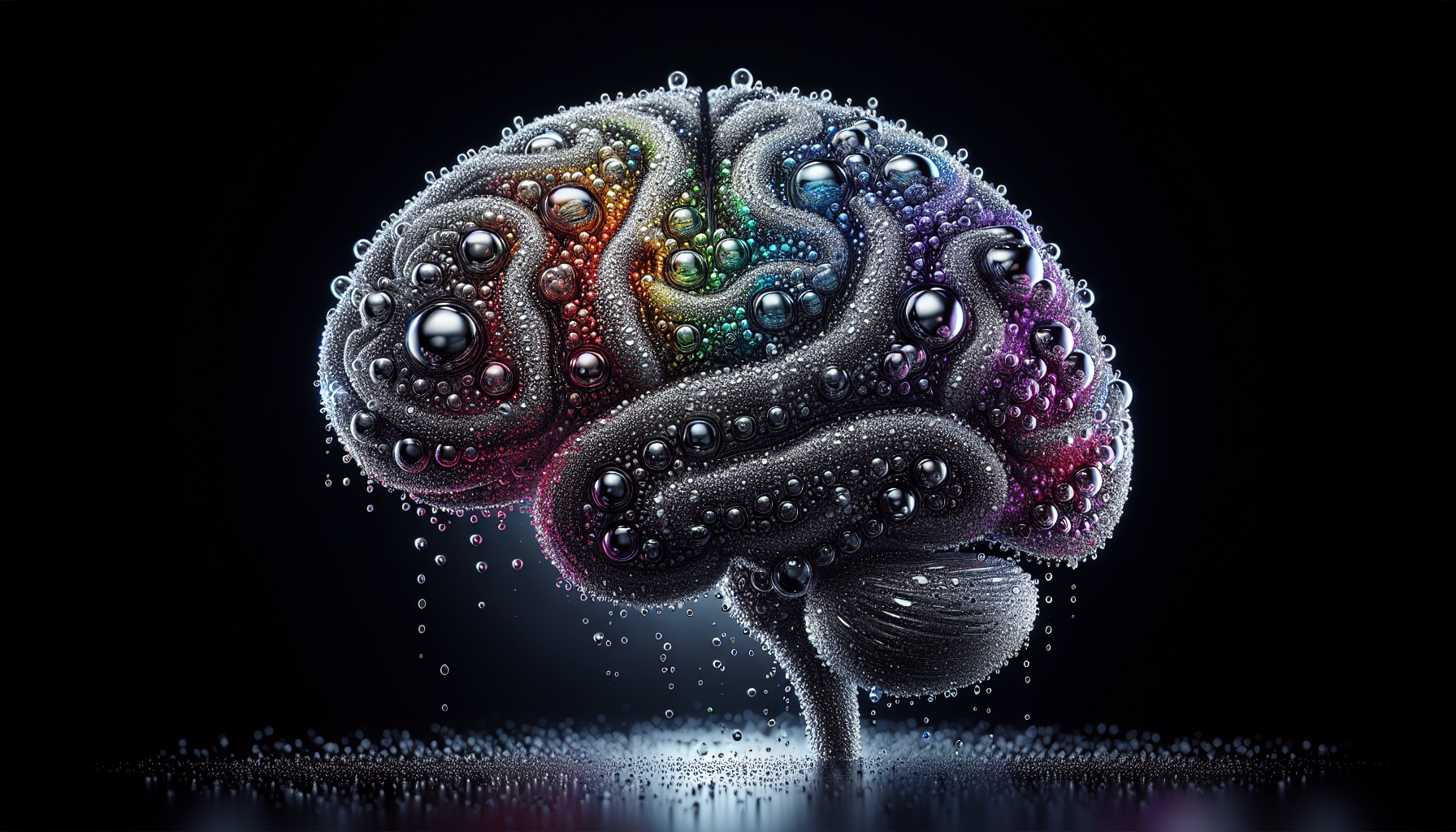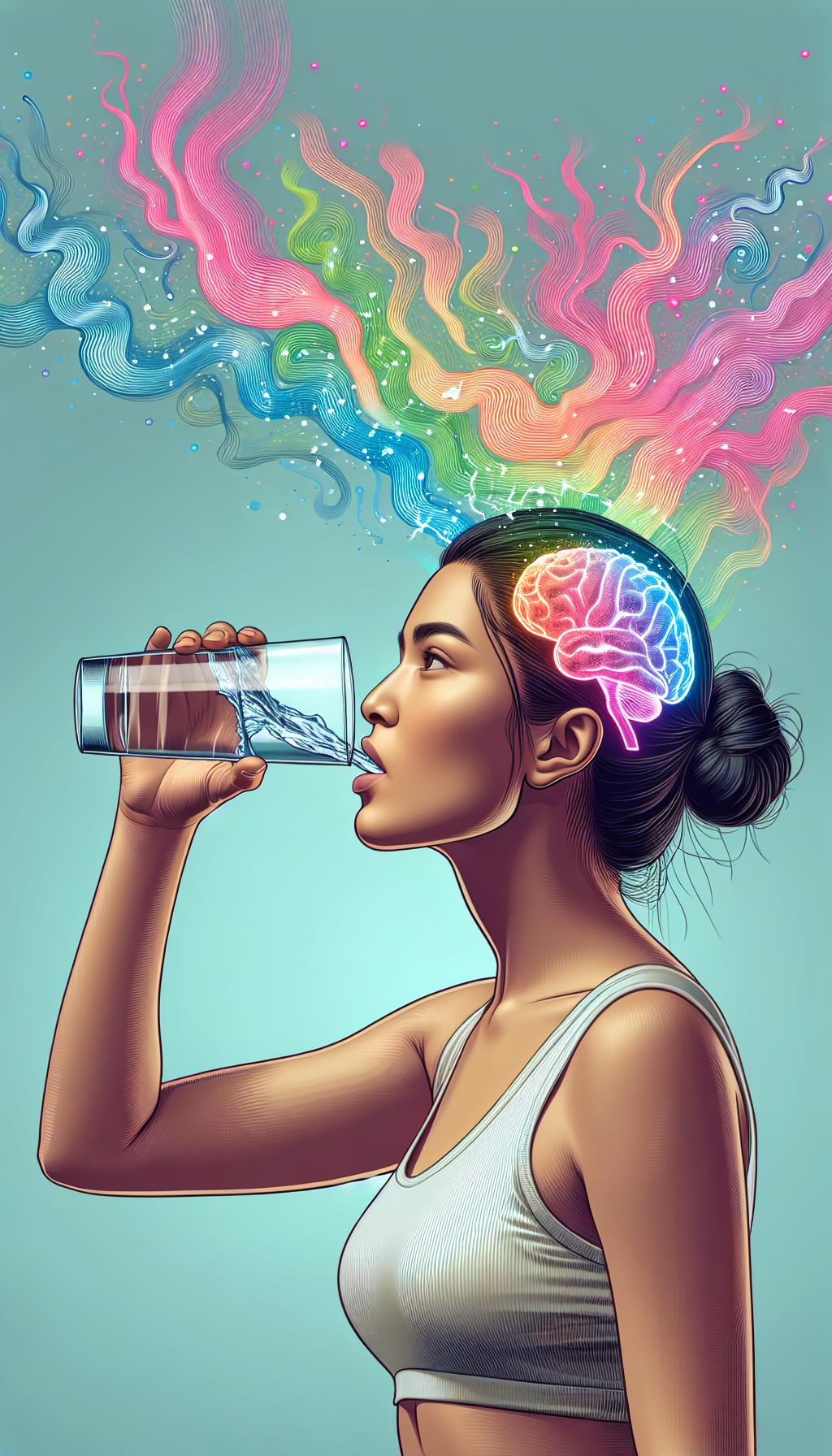Hydration is a critical aspect of our overall health and well-being, but its effects on cognitive performance are often overlooked. Cognitive functions such as memory, attention, and decision-making can be substantially affected by our hydration status. This article delves into the complex relationship between hydration and cognitive performance, offering insights into how maintaining proper fluid balance can support brain health and enhance mental capabilities.
The Science of Hydration and Brain Function
The human brain is approximately 75% water, and this water is vital for its proper functioning. Water facilitates neurotransmission, delivers nutrients, and removes toxins. When the body is dehydrated, even by a small amount, the brain can’t perform at its best. Studies have shown that dehydration impairs attention, executive function, and motor coordination.
For a deeper understanding of the general importance of brain health, consider reading about Brain Health on Avix Health, which provides foundational knowledge on maintaining cognitive function.
The Role of Water in Neurotransmission
Neurotransmitters are the chemical messengers of the brain, and they depend on water to move efficiently across synapses. Dehydration can disrupt this process, leading to slower cognitive processing and reaction times. Furthermore, water is essential for generating electrical energy for brain function, which powers thought processes and nerve transmission.
Cognitive Domains Affected by Hydration
Memory: Adequate hydration is necessary for maintaining short-term and long-term memory. Dehydration can lead to difficulties in remembering tasks or processing new information.
Attention and Concentration: Focus can waver and the ability to concentrate can decrease with inadequate water intake, making it harder to stay on task.
Decision Making: The decision-making process relies on the prefrontal cortex, which is sensitive to changes in hydration levels. Even mild dehydration can result in making less optimal decisions.
Coordination: Motor skills and hand-eye coordination can suffer when the body is not sufficiently hydrated, which can be especially noticeable in activities requiring fine motor skills.
External Research on Hydration and Cognitive Performance
To further validate these points, external resources offer detailed insights:
-
The European Food Safety Authority has conducted research on the correlation between water intake and cognitive performance, highlighting the importance of hydration for maintaining cognitive functions.
-
The American Journal of Clinical Nutrition provides peer-reviewed studies on the impact of fluid balance on brain health.
-
For insights into the molecular mechanisms at play, the Journal of Neuroscience offers research on how dehydration affects brain structure and function.
Practical Tips for Staying Hydrated
-
Monitor Fluid Intake: Aim for the recommended daily water intake, which is about 3.7 liters for men and 2.7 liters for women, as per the National Academies of Sciences, Engineering, and Medicine.
-
Eat Water-Rich Foods: Consuming fruits and vegetables with high water content can help maintain hydration.
-
Mind Your Environment: Hot weather and high altitudes can increase water loss, making it important to drink more fluids in these conditions.
-
Listen to Your Body: Thirst is a late indicator of dehydration. Drink water regularly throughout the day, even before you feel thirsty.
-
Reduce Diuretics: Beverages like coffee and alcohol have diuretic effects and can contribute to fluid loss. Balance these with water intake.
Linking Hydration to Other Aspects of Health
While hydration is crucial for cognitive performance, it is also interlinked with other health aspects. For instance, cardiovascular health is dependent on fluid volume to maintain blood pressure and heart function. Read more on Cardiovascular Health to understand the relationship between hydration and heart health.
Related Avix Health Articles
To complement your understanding of how hydration affects cognitive function, consider exploring these related topics:
-
Nutritional Supplements for Enhanced Cognitive Function discusses how certain supplements can support brain health.
-
The Role of Sleep in Maintaining Brain Health explores the critical connection between quality sleep and cognitive performance.
-
Mental Exercises to Boost Brain Power provides strategies to strengthen cognitive abilities through targeted exercises.
The Impact of Dehydration on Specific Populations
Certain populations may be more vulnerable to the cognitive effects of dehydration:
-
Children and the Elderly: These groups have a higher risk of dehydration and may not recognize or be able to communicate their thirst adequately.
-
Athletes: Intense physical activity increases fluid loss through sweat, requiring vigilant hydration to maintain performance.
-
Individuals With Chronic Illnesses: Conditions such as diabetes can affect hydration status and, consequently, cognitive function.
Conclusion
Optimal hydration is a key component of cognitive health. By understanding the science behind hydration’s role in brain function and following practical tips to maintain fluid balance, individuals can enhance their cognitive performance and overall well-being.
As we continue to uncover the complexities of the human brain, the significance of simple daily habits, such as drinking water, becomes ever more apparent. Hydration’s role in cognitive function is an essential piece of the larger puzzle of maintaining a healthy, active mind throughout all stages of life.



